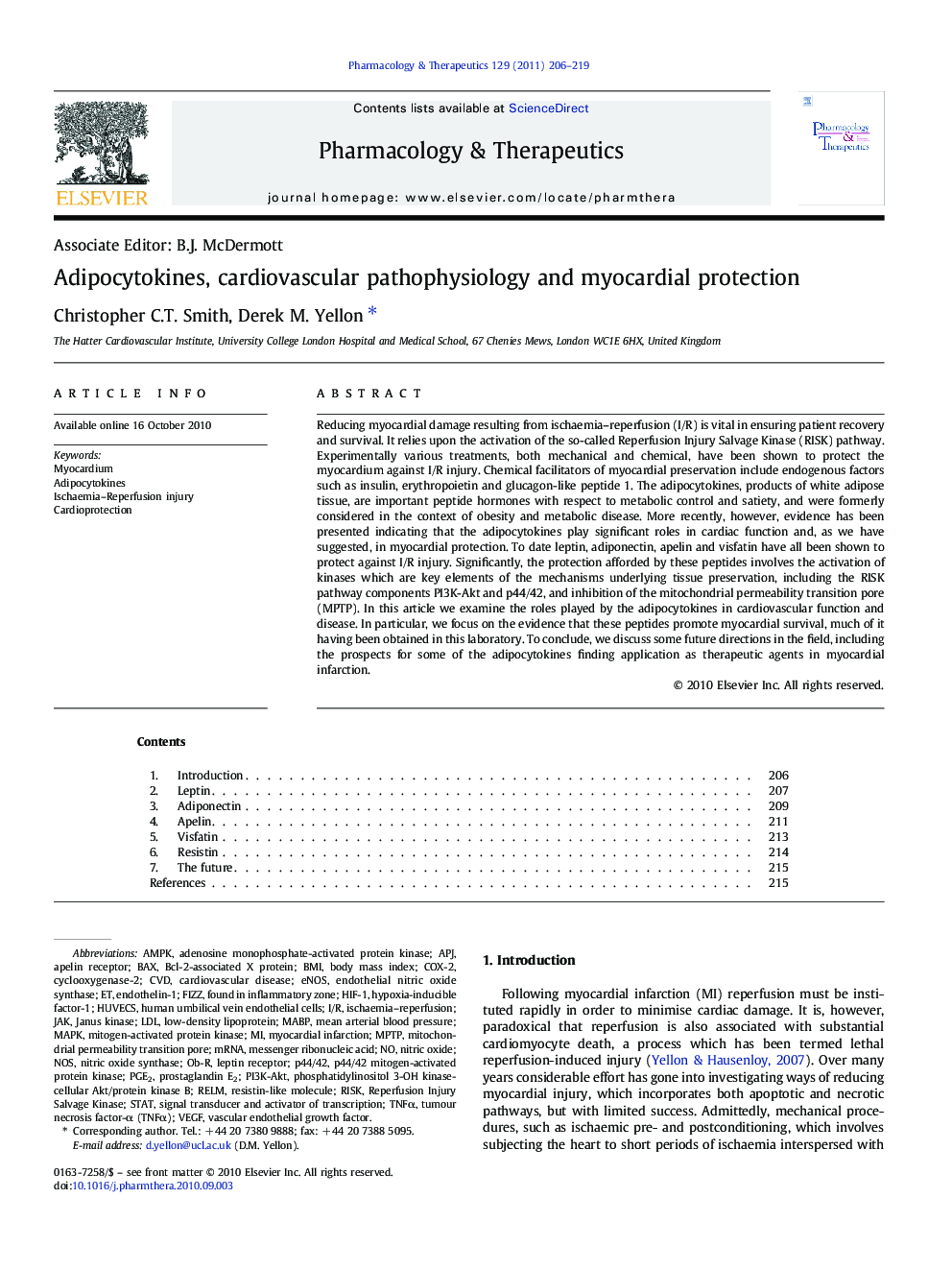| Article ID | Journal | Published Year | Pages | File Type |
|---|---|---|---|---|
| 2563430 | Pharmacology & Therapeutics | 2011 | 14 Pages |
Reducing myocardial damage resulting from ischaemia–reperfusion (I/R) is vital in ensuring patient recovery and survival. It relies upon the activation of the so-called Reperfusion Injury Salvage Kinase (RISK) pathway. Experimentally various treatments, both mechanical and chemical, have been shown to protect the myocardium against I/R injury. Chemical facilitators of myocardial preservation include endogenous factors such as insulin, erythropoietin and glucagon-like peptide 1. The adipocytokines, products of white adipose tissue, are important peptide hormones with respect to metabolic control and satiety, and were formerly considered in the context of obesity and metabolic disease. More recently, however, evidence has been presented indicating that the adipocytokines play significant roles in cardiac function and, as we have suggested, in myocardial protection. To date leptin, adiponectin, apelin and visfatin have all been shown to protect against I/R injury. Significantly, the protection afforded by these peptides involves the activation of kinases which are key elements of the mechanisms underlying tissue preservation, including the RISK pathway components PI3K-Akt and p44/42, and inhibition of the mitochondrial permeability transition pore (MPTP). In this article we examine the roles played by the adipocytokines in cardiovascular function and disease. In particular, we focus on the evidence that these peptides promote myocardial survival, much of it having been obtained in this laboratory. To conclude, we discuss some future directions in the field, including the prospects for some of the adipocytokines finding application as therapeutic agents in myocardial infarction.
